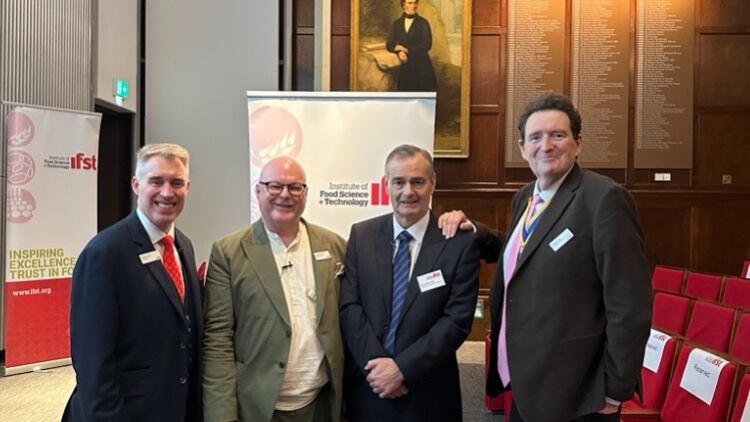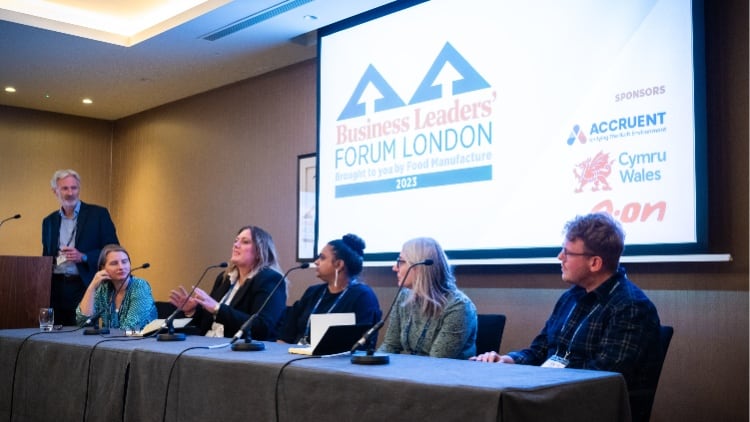The event, hosted by IFST president Sterling Crew, welcomed guest speakers Dr Wayne Martindale and Professor Jeremy Hill to tackle the topic: ‘Living in a hostile world: the need for food science and technology’.
The pair are both experienced and well-known figures in the world of food science and technology, and left the audience with the message that the discipline will play a crucial role in successfully transforming the food system in an inclusive and prosperous manner.
Held in Westminster, the event was also broadcast live to audiences at satellite events in Norwich, Ulster, Cardiff, Bath and Coventry.
Opening proceedings, Crew said that the food sector is facing a “perfect storm” with issues such as food insecurity, the talent drain, inflation and war all posing threats at once. Nonetheless, Crew believes that despite the ongoing geo-political uncertainty “retention and recruitment is the biggest challenge” facing the food industry.
Next, Martindale used a schematic of the global food system to begin his talk, illustrating the complex nature of how food security, terrestrial and aquatic flows, politics and governments, and science and technology all relate to one another. Hill responded by harking back to Crew’s initial remarks about the scale of the challenges facing the global food system and the need to “nurture talent” that will help find solutions to the complex issues raised by his fellow speaker.
Engagement needed throughout the industry
The Sustainable Nutrition Initiative (SNI) has been a long-term project of Hill – a collection of scientists that conduct mathematical modelling which allows users to look at projections of how nutrients will be provided in 2050 versus how they were provided in 2020. The SNI aims to empower users to look at how future consumers will have access to different groups of macro and micronutrients, which form the building blocks of a healthy diet, in a bid to better understand future food security.
Reflecting on his work through the initiative, Hill explained: “No food system is sustainable unless it provides the nutrition required for the population.” He added that change must be executed at a local level, but informed by global trends and data.
Martindale praised the work of the SNI, declaring that “if you don’t have the models to project where you’re going, you won’t succeed.” He then looked at the current food system and its fragile nature, using the example of disruption caused by the war in Ukraine. The University of Lincoln academic pointed out that Ukraine is a key food producer for many countries, and that the impacts of this loss in production will be felt most-harshly in poorer countries, which may not be able to afford the increase in food prices when this market shock is felt.
Finally, Martindale addressed the requirement to tackle climate change and the “need to engage the workforce in net zero and carbon emissions”. Concluding the lecture, he called for greater engagement on the climate impacts of the food system at all levels: policy, industry and academia.
In other news, Food Manufacture has compiled the key takeaways from the October 2023 Business Leaders’ Forum.





